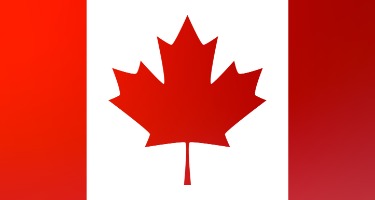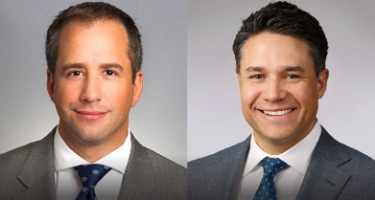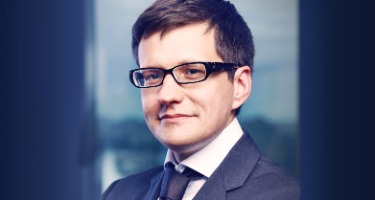George N. Addy, senior counsel at the Canadian law firm Davies Ward Phillips & Vineberg LLP and former head of the Canadian Competition Bureau, talks with Best Lawyers CEO Phillip Greer on the evolving nature of Competition and Antitrust law both locally and globally. The winner of the 2019 “Law Firm of the Year Award” for that practice in Canada, Addy discusses how his firm remains competitive in a changing field.
Are there any trends that you’ve witnessed within the competition and antitrust law sectors in the past year, and do you see these trends continuing to change in Canada in the future?
On the issue of the global or international competition law environment, I think there are a couple of notable trends of concern. The first is the growing deliberate extraterritorial reach of remedies that essentially use competition law as a trade tool. Frankly, I think the European Commission’s numerous investigations of the Silicon Valley high-tech sector are more trade-oriented as opposed to pure competition law–oriented. I find that trend quite worrisome, and I hope it doesn’t spread.
The second trend, somewhat related to the first or perhaps building on it, is the extensive mimicking in the antitrust enforcement community. If one antitrust agency decides to explore an issue, then they all have to start their own reviews or studies on the same issue. It’s like a domino effect with little appearance that there’s a lot more behind these initiatives other than “We should do it because the others are doing it.” It seems there’s something of a “groupthink” at play as opposed to agencies doing their job under their legislation, deciding the matter and issuing a decision. Often today with international mergers, you’ll have several countries looking at a transaction and analyzing it, but even though country A has finished its examination, it won’t issue its decision because country B or C or D is still looking at it. They sometimes seem more preoccupied with coordinating the timing of press releases than telling parties what they’ve decided when they’ve completed their analysis. I’m worried about that behavior diluting the focus of national agencies on their national law. It can also be unfair to the parties.
Another example of the groupthink issue can be seen in the “privacy” space. I doubt you can find an antitrust agency in the world that doesn’t have some review going on now regarding the competitive implications of privacy. I’m worried that there’s a lot of mandate confusion and extensive resources being spent by agencies on issues outside the antitrust space because privacy is perhaps more interesting than the usual files or because privacy is catching media attention—a new Y2K frenzy of sorts.
If one antitrust agency decides to explore an issue, then they all have to start their own reviews or studies on the same issue. It’s like a domino effect with little appearance that there’s a lot more behind these initiatives...
Another trend that has increasingly been the subject of commentary is timeliness of decision-making by competition authorities and Canada is no exception. Experience and judgment often seem to have lost ground to an analysis by checklists and blind adherence to process. This has led to merger reviews taking longer and longer, often outside agency guidelines or performance measures—again at significant costs to the parties.
Those are some of the trends that concern me.
Are there any policy changes on the government level, either locally or globally, that you’re also seeing affecting competition or antitrust law?
Globally, there are increased market uncertainties flowing from some of President Trump’s initiatives and from initiatives elsewhere around the world: trade wars, political instability, and protectionist policies to name a few—all of which are affecting and chilling capital investment decisions. In Canada, those concerns were compounded by uncertainty in 2018 regarding NAFTA and infrastructure projects and recently about relations with China. Good examples are the pipeline files and concerns about the ability of investors in the resource sector to actually get deals done and capital investments completed. Whether warranted or not, investor concerns over whether you can get your pipeline built, for example, or whether infrastructure spending will actually show up at some point create a layer of uncertainty that is driving the business sector to be quieter and hold back on growth and investment plans, as it waits to figure out what the lay of the land is going to be.
In what way has technology impacted your firm’s work in antitrust law?
We are all aware of the benefits of technology in providing easy access to information needed in the practice of law. One of the other things technology has done is allow us to deal with multinational issues more easily. In real terms, if you’re dealing with multinational conduct files or mergers, you actually don’t spend much face time with clients. You’re working with other firms around the globe and coordinating filings with various agencies to ensure consistency and that regulatory submissions accurately reflect market conditions. It’s easy to communicate collaboratively with counterparts. A lot of the practice today is global, and technology has allowed us to deal with that. I joke with colleagues that my office is my briefcase. It really doesn’t matter where I am physically. I’ve got my laptop. I can get online. I’ve got my smartphone, and I can deal with clients anywhere in the world, 24/7. So technology has had that impact. Some people resent it, but frankly, I embrace it because it allows me to do my job more efficiently.
How does Davies stay agile against competitors in antitrust law?
To start, there is our laser focus on our strategy to be the firm that clients go to for business-critical work. We’re also laser-focused on excellence, which I think give us the edge. And then, the third component of our success, is our promotion of thought leadership, the way we work as a firm, the culture here, a flat organizational structure and how young lawyers are encouraged and mentored. All of that is critical to attract and build the right team and be the best at what we do.
I’ll just close with a little anecdote that reflects several of the key features of our firm’s success. At the height of the “patent wars,” we undertook an internal study focused on the intersection of antitrust and IP laws and policies because of my concerns about the lack of discourse in Canada on those issues. I enlisted a young associate in the group to help me and she spent several months of intense work on the project. The study caught the attention of the government of Canada, which commissioned a more in-depth analysis to assist in its review of IP policy. The associate was so enthralled with these issues that with my full support and that of the firm, she left Davies to pursue an MA at Stanford in law and the Internet. Since then, she’s worked with a national U.S. firm in Silicon Valley and is now a professor at Temple University. While we lost a valuable member of the team, I’m proud that we provided an environment for somebody to blossom and to feel comfortable enough to take on a new challenge and just follow her passion. I think that type of environment is a terrific example of one of the real attractions of our firm and that keeps us ahead of our competition.
































